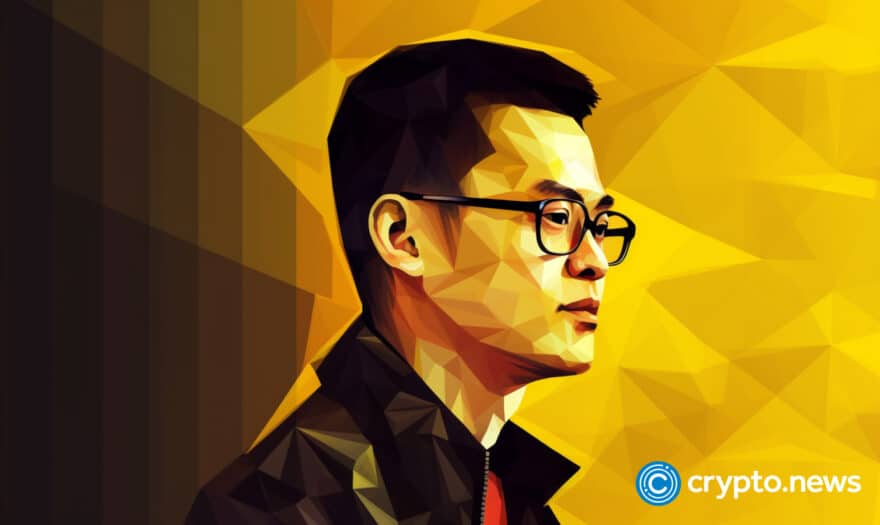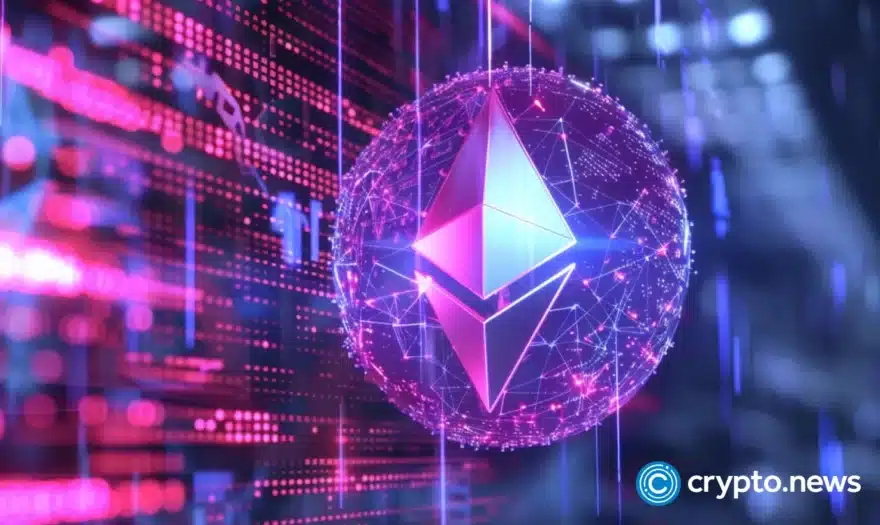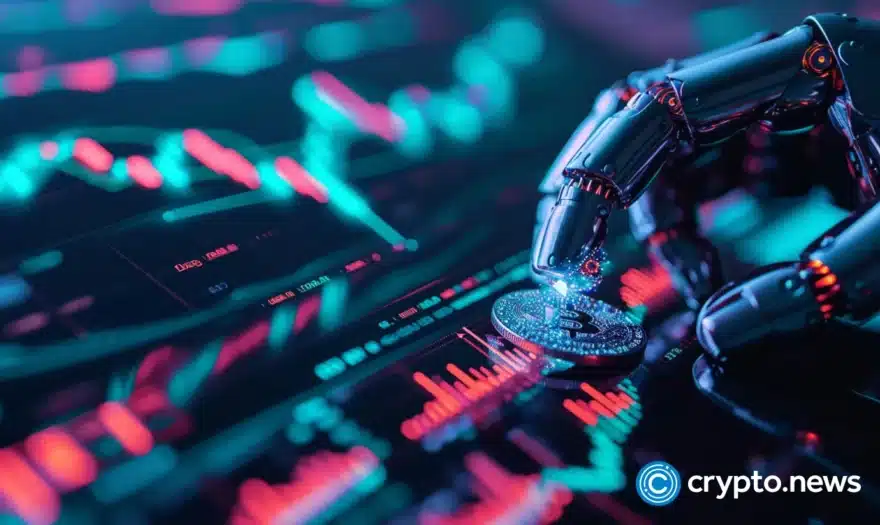AI meets blockchain: exploring integration, benefits, and challenges

Discover the synergy between AI and blockchain technology. Explore integration, benefits, challenges, and future trends.
Table of Contents
Artificial Intelligence (AI) and blockchain are making profound impacts across various sectors, but their potential is amplified when integrated.
AI brings advanced data processing capabilities, enhancing decision-making with speed and precision. Meanwhile, blockchain offers a secure, decentralized ledger that ensures data integrity and transparency.
Together, they create a powerful combination that can address some of the fundamental challenges in technology today.
According to a WSJ report, the integration of blockchain in AI could solve the “black box” problem of AI, where blockchain’s transparency helps demystify AI decisions and makes them verifiable.
Scott Zoldi, FICO’s chief analytics officer, suggests that blockchain can precisely track the data used to train algorithms, providing transparent and reliable records. While it won’t prevent algorithms from exhibiting bias, blockchain offers an auditable trail to understand their behavior.
Interestingly, a survey involving IT decision-makers from the U.S., Europe, and China found that 71% view these technologies as fully complementary, with many noting that blockchain could enhance trust and reliability in AI systems.
Let’s delve deeper into this subject and try to understand what the convergence of AI and blockchain holds.
What is artificial intelligence?
AI is the ability of computer systems to perform tasks that typically require human intelligence, such as recognizing speech, understanding language, making decisions, and identifying patterns.
AI is not just a single technology but a broad field encompassing various techniques and technologies, including machine learning, computer vision, and natural language processing (NLP).
Machine learning involves training algorithms on data, allowing them to improve their performance over time without being explicitly programmed for each task.
For example, AI can analyze vast amounts of data to identify trends or make predictions, which is useful in fields like healthcare for diagnosing diseases or in finance for predicting market trends.
Computer vision allows machines to interpret and make decisions based on visual data, helping in areas such as autonomous driving and facial recognition technologies.
Automakers like Tesla, Volvo, BMW, and Audi utilize computer vision in their self-driving cars. This technology allows the vehicles to detect objects, recognize lane markings, and interpret traffic signals for safe travel.
Meanwhile, NLP enables computers to understand and interact with humans in a natural way, which is used in virtual assistants like Siri and Alexa.
In a nutshell, AI’s combined capabilities are advancing quickly, contributing to its integration across various sectors. According to a report by PwC, AI could contribute up to $15.7 trillion to the global economy by 2030, with gains from increased productivity and consumer demand.
What is blockchain?
Blockchain is a digital ledger technology that records transactions in a decentralized and secure manner.
It is the underlying technology behind cryptocurrencies like Bitcoin (BTC) and Ethereum (ETH) but has applications far beyond digital currencies.
Each transaction or “block” in blockchain is linked to the previous and subsequent blocks, forming a chronological chain that is nearly impossible to alter. This inherent security feature is why blockchain is highly prized in fields requiring transparency and trust.
To put it into perspective, blockchain is not just about financial transactions; it’s useful in various sectors by enhancing supply chain transparency, securing medical records, streamlining government operations, and so on.
For instance, a blockchain can track the journey of food products from farm to table, ensuring food safety. In healthcare, blockchain helps maintain tamper-proof records, improving patient privacy and trust in the system.
According to Gartner, blockchain will generate an annual business value of over $3.1 trillion by 2030.
Blockchain vs AI: how do blockchain and AI work together?
Here is a breakdown of how artificial intelligence and blockchain work together:
| Blockchain contribution | AI contribution | Combined benefit |
| Ensures data immutability and secure, transparent transactions | Detects fraudulent activity through pattern recognition | Enhances data reliability, aiding in compliance and auditing processes |
| Automates contractual obligations with smart contracts | Streamlines decision-making by processing data efficiently | Improves business processes, reducing time and costs in operations |
| Provides a secure and decentralized data storage solution | Analyzes and manages vast amounts of data | Protects and leverages data for better decision-making and integrity |
| Supports loyalty programs and secure customer data management | Personalizes customer interactions based on data analysis | Creates tailored experiences, increasing customer satisfaction and retention |
| Maintains a permanent and transparent record of all transactions | Assists in monitoring and ensuring compliance in real-time | Streamlines compliance with regulations, ensuring transparency and traceability |
Benefits of combining AI and blockchain
AI in blockchain creates powerful synergies that extend beyond their individual capabilities. Here are some examples of how they can work together to improve industries:
Data integrity and security
By securing AI data on a blockchain, industries such as logistics and supply chain management can ensure the authenticity and accuracy of data across the entire supply network.
This setup can prevent tampering and ensures that records from the manufacturing stage to delivery are intact, which is crucial for compliance and tracing origins in pharmaceuticals.
Improved decision-making
In the energy sector, integrating AI with blockchain can allow for better management of data across distributed energy grids.
AI can analyze consumption patterns and predict load demands, while blockchain can ensure the data integrity of meter readings, transaction records, and user data, facilitating accurate and transparent billing and distribution decisions.
Automation and efficiency
The real estate industry can also benefit from the automation of land registry and lease management processes.
Smart contracts on blockchain can automatically execute rental agreements, release payments, and manage property rights transfers. Meanwhile, AI-assisted checks can validate conditions such as payment clearance or contract expiry, reducing the administrative burden.
Decentralized AI
In media and entertainment, decentralized AI networks on blockchain can allow creators and consumers to interact without intermediaries.
AI algorithms can personalize user experiences by suggesting content based on viewing habits, while blockchain can provide a platform for transparent royalty distribution and copyright enforcement, promoting fair compensation and reducing piracy.
Governance and transparency
In the automotive industry, particularly in autonomous vehicles, blockchain can log all sensor and operational data while AI can interpret this data for vehicle performance and safety enhancements.
The transparent nature of blockchain records can help in audit trails, liability determinations, and compliance with safety regulations, ensuring that AI decisions are traceable and accountable.
The future of AI and blockchain
The future of AI and blockchain could bring critical changes. Both technologies are evolving, and their integration could enhance operational efficiencies and create new opportunities for innovation.
AI is becoming more accessible and efficient thanks to advancements such as low-rank adaptation, which simplifies the modification of pre-trained models, making it easier for smaller entities to utilize advanced AI capabilities.
On the blockchain front, the technology is seeing greater enterprise adoption and improved regulatory clarity. This could enable more efficient transactions in several industries in the future.
Moreover, the synergy between AI and blockchain could be useful in the development of virtual environments, such as the Metaverse.
While AI could enhance the interactivity and realism of virtual spaces, blockchain could ensure the security of digital identities and transactions.
Overall, critical advancements in both these sectors could reshape digital interactions and business processes across various industries.














